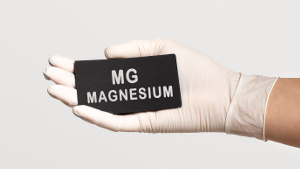afterLoad (456.48KB) (1.86ms)
afterInitialise (1.28MB) (19.68ms)
afterRoute (856.95KB) (5.27ms)
beforeRenderComponent com_content (35.24KB) (431μs)
Before Access::preloadComponents (all components) (69.88KB) (667μs)
After Access::preloadComponents (all components) (98.07KB) (789μs)
Before Access::preloadPermissions (com_content) (1.6KB) (19μs)
After Access::preloadPermissions (com_content) (3.29MB) (5.78ms)
Before Access::getAssetRules (id:62 name:com_content.category.20) (130.65KB) (126μs)
After Access::getAssetRules (id:62 name:com_content.category.20) (7.38KB) (72μs)
Before Access::getAssetRules (id:8 name:com_content) (51.77KB) (13.68ms)
After Access::getAssetRules (id:8 name:com_content) (6.17KB) (36μs)
afterRenderComponent com_content (1.34MB) (73.68ms)
afterDispatch (32.63KB) (2.3ms)
beforeRenderRawModule mod_articles_category (READ MORE...) (350.71KB) (5.09ms)
afterRenderRawModule mod_articles_category (READ MORE...) (84.63KB) (44.23ms)
beforeRenderRawModule mod_tags_popular (Search) (4.81KB) (36μs)
afterRenderRawModule mod_tags_popular (Search) (6.66KB) (39.64ms)
beforeRenderRawModule mod_custom (BOOST YOUR IMMUNE DEFENSE) (960B) (33μs)
afterRenderRawModule mod_custom (BOOST YOUR IMMUNE DEFENSE) (4.2KB) (284μs)
beforeRenderRawModule mod_custom (Are you taking supplements) (736B) (15μs)
afterRenderRawModule mod_custom (Are you taking supplements) (1.03KB) (26μs)
beforeRenderRawModule mod_articles_category (Get additionel and more detailed knowledge about) (8.41KB) (21μs)
afterRenderRawModule mod_articles_category (Get additionel and more detailed knowledge about) (44.39KB) (5.91ms)
beforeRenderRawModule mod_custom (Antiaging) (6.97KB) (33μs)
afterRenderRawModule mod_custom (Antiaging) (1KB) (45μs)
beforeRenderRawModule mod_custom (Exercise) (720B) (12μs)
afterRenderRawModule mod_custom (Exercise) (1.02KB) (22μs)
beforeRenderRawModule mod_custom (Check this before you buy a Q10 product) (752B) (10μs)
afterRenderRawModule mod_custom (Check this before you buy a Q10 product) (944B) (19μs)
beforeRenderModule mod_articles_category (READ MORE...) (267.89KB) (6.11ms)
afterRenderModule mod_articles_category (READ MORE...) (1.25KB) (95μs)
beforeRenderModule mod_tags_popular (Search) (5.17KB) (16μs)
afterRenderModule mod_tags_popular (Search) (2.52KB) (26μs)
beforeRenderModule mod_custom (BOOST YOUR IMMUNE DEFENSE) (1.31KB) (11μs)
afterRenderModule mod_custom (BOOST YOUR IMMUNE DEFENSE) (1.28KB) (21μs)
beforeRenderModule mod_custom (Are you taking supplements) (352B) (10μs)
afterRenderModule mod_custom (Are you taking supplements) (1.28KB) (20μs)
beforeRenderModule mod_articles_category (Get additionel and more detailed knowledge about) (8.03KB) (16μs)
afterRenderModule mod_articles_category (Get additionel and more detailed knowledge about) (1.31KB) (21μs)
beforeRenderModule mod_custom (Antiaging) (7.33KB) (9μs)
afterRenderModule mod_custom (Antiaging) (1.27KB) (19μs)
beforeRenderModule mod_custom (Exercise) (336B) (9μs)
afterRenderModule mod_custom (Exercise) (1.25KB) (1.13ms)
beforeRenderModule mod_custom (Check this before you buy a Q10 product) (352B) (22μs)
afterRenderModule mod_custom (Check this before you buy a Q10 product) (1.28KB) (42μs)
beforeRenderRawModule mod_menu (Main menu-US) (28.53KB) (654μs)
afterRenderRawModule mod_menu (Main menu-US) (157.05KB) (3.23ms)
beforeRenderModule mod_menu (Main menu-US) (720B) (8μs)
afterRenderModule mod_menu (Main menu-US) (4.36KB) (83μs)
beforeRenderRawModule mod_languages (Sprogskift) (3.44KB) (25μs)
afterRenderRawModule mod_languages (Sprogskift) (29.88KB) (4.21ms)
beforeRenderModule mod_languages (Sprogskift) (720B) (8μs)
afterRenderModule mod_languages (Sprogskift) (5.31KB) (26μs)
beforeRenderRawModule mod_finder () (6.34KB) (15μs)
afterRenderRawModule mod_finder () (154.54KB) (4ms)
beforeRenderModule mod_finder () (704B) (7μs)
afterRenderModule mod_finder () (3.29KB) (42μs)
beforeRenderRawModule mod_custom () (6.62KB) (156μs)
afterRenderRawModule mod_custom () (90.52KB) (3.4ms)
beforeRenderModule mod_custom () (704B) (8μs)
afterRenderModule mod_custom () (1.23KB) (63μs)
beforeRenderRawModule mod_menu (Main menu-US) (5.07KB) (132μs)
afterRenderRawModule mod_menu (Main menu-US) (5.8KB) (755μs)
beforeRenderModule mod_menu (Main menu-US) (720B) (3μs)
afterRenderModule mod_menu (Main menu-US) (3.75KB) (48μs)
beforeRenderRawModule mod_languages (Sprogskift Mobil) (912B) (17μs)
afterRenderRawModule mod_languages (Sprogskift Mobil) (3.89KB) (2.29ms)
beforeRenderModule mod_languages (Sprogskift Mobil) (720B) (8μs)
afterRenderModule mod_languages (Sprogskift Mobil) (1.27KB) (51μs)
beforeRenderRawModule mod_finder () (2.3KB) (15μs)
afterRenderRawModule mod_finder () (6.29KB) (787μs)
beforeRenderModule mod_finder () (704B) (6μs)
afterRenderModule mod_finder () (1.23KB) (55μs)
beforeRenderRawModule mod_custom () (8.66KB) (202μs)
afterRenderRawModule mod_custom () (904B) (174μs)
beforeRenderModule mod_custom () (704B) (2μs)
afterRenderModule mod_custom () (2.43KB) (27μs)
beforeRenderRawModule mod_custom () (688B) (1.19ms)
afterRenderRawModule mod_custom () (896B) (251μs)
beforeRenderModule mod_custom () (704B) (4μs)
afterRenderModule mod_custom () (2.71KB) (37μs)
afterRender (180.7KB) (6.47ms)
| 1 x afterRenderComponent com_content (1.34MB) (28.55%) | 73.68ms |
| 1 x afterRenderRawModule mod_articles_category (READ MORE...) (84.63KB) (17.14%) | 44.23ms |
| 1 x afterRenderRawModule mod_tags_popular (Search) (6.66KB) (15.36%) | 39.64ms |
| 1 x afterInitialise (1.28MB) (7.63%) | 19.68ms |
| 1 x Before Access::getAssetRules (id:8 name:com_content) (51.77KB) (5.3%) | 13.68ms |
| 1 x afterRender (180.7KB) (2.51%) | 6.47ms |
| 1 x beforeRenderModule mod_articles_category (READ MORE...) (267.89KB) (2.37%) | 6.11ms |
| 1 x afterRenderRawModule mod_articles_category (Get additionel and more detailed knowledge about) (44.39KB) (2.29%) | 5.91ms |
| 1 x After Access::preloadPermissions (com_content) (3.29MB) (2.24%) | 5.78ms |
| 1 x afterRoute (856.95KB) (2.04%) | 5.27ms |
| 1 x beforeRenderRawModule mod_articles_category (READ MORE...) (350.71KB) (1.97%) | 5.09ms |
| 1 x afterRenderRawModule mod_languages (Sprogskift) (29.88KB) (1.63%) | 4.21ms |
| 1 x afterRenderRawModule mod_finder () (154.54KB) (1.55%) | 4.00ms |
| 1 x afterRenderRawModule mod_custom () (90.52KB) (1.32%) | 3.40ms |
| 1 x afterRenderRawModule mod_menu (Main menu-US) (157.05KB) (1.25%) | 3.23ms |
| 1 x afterDispatch (32.63KB) (0.89%) | 2.30ms |
| 1 x afterRenderRawModule mod_languages (Sprogskift Mobil) (3.89KB) (0.89%) | 2.29ms |
| 1 x afterLoad (456.48KB) (0.72%) | 1.86ms |
| 1 x beforeRenderRawModule mod_custom () (688B) (0.46%) | 1.19ms |
| 1 x afterRenderModule mod_custom (Exercise) (1.25KB) (0.44%) | 1.13ms |
| 1 x After Access::preloadComponents (all components) (98.07KB) (0.31%) | 789μs |
| 1 x afterRenderRawModule mod_finder () (6.29KB) (0.3%) | 787μs |
| 1 x afterRenderRawModule mod_menu (Main menu-US) (5.8KB) (0.29%) | 755μs |
| 1 x Before Access::preloadComponents (all components) (69.88KB) (0.26%) | 667μs |
| 1 x beforeRenderRawModule mod_menu (Main menu-US) (28.53KB) (0.25%) | 654μs |
| 1 x beforeRenderComponent com_content (35.24KB) (0.17%) | 431μs |
| 1 x afterRenderRawModule mod_custom (BOOST YOUR IMMUNE DEFENSE) (4.2KB) (0.11%) | 284μs |
| 1 x afterRenderRawModule mod_custom () (896B) (0.1%) | 251μs |
| 1 x beforeRenderRawModule mod_custom () (8.66KB) (0.08%) | 202μs |
| 1 x afterRenderRawModule mod_custom () (904B) (0.07%) | 174μs |
| 1 x beforeRenderRawModule mod_custom () (6.62KB) (0.06%) | 156μs |
| 1 x beforeRenderRawModule mod_menu (Main menu-US) (5.07KB) (0.05%) | 132μs |
| 1 x Before Access::getAssetRules (id:62 name:com_content.category.20) (130.65KB) (0.05%) | 126μs |
| 1 x afterRenderModule mod_articles_category (READ MORE...) (1.25KB) (0.04%) | 95μs |
| 1 x afterRenderModule mod_menu (Main menu-US) (4.36KB) (0.03%) | 83μs |
| 1 x After Access::getAssetRules (id:62 name:com_content.category.20) (7.38KB) (0.03%) | 72μs |
| 1 x afterRenderModule mod_custom () (1.23KB) (0.02%) | 63μs |
| 1 x afterRenderModule mod_finder () (1.23KB) (0.02%) | 55μs |
| 1 x afterRenderModule mod_languages (Sprogskift Mobil) (1.27KB) (0.02%) | 51μs |
| 1 x afterRenderModule mod_menu (Main menu-US) (3.75KB) (0.02%) | 48μs |
| 1 x afterRenderRawModule mod_custom (Antiaging) (1KB) (0.02%) | 45μs |
| 1 x afterRenderModule mod_custom (Check this before you buy a Q10 product) (1.28KB) (0.02%) | 42μs |
| 1 x afterRenderModule mod_finder () (3.29KB) (0.02%) | 42μs |
| 1 x afterRenderModule mod_custom () (2.71KB) (0.01%) | 37μs |
| 1 x After Access::getAssetRules (id:8 name:com_content) (6.17KB) (0.01%) | 36μs |
| 1 x beforeRenderRawModule mod_tags_popular (Search) (4.81KB) (0.01%) | 36μs |
| 1 x beforeRenderRawModule mod_custom (BOOST YOUR IMMUNE DEFENSE) (960B) (0.01%) | 33μs |
| 1 x beforeRenderRawModule mod_custom (Antiaging) (6.97KB) (0.01%) | 33μs |
| 1 x afterRenderModule mod_custom () (2.43KB) (0.01%) | 27μs |
| 1 x afterRenderRawModule mod_custom (Are you taking supplements) (1.03KB) (0.01%) | 26μs |
| 1 x afterRenderModule mod_tags_popular (Search) (2.52KB) (0.01%) | 26μs |
| 1 x afterRenderModule mod_languages (Sprogskift) (5.31KB) (0.01%) | 26μs |
| 1 x beforeRenderRawModule mod_languages (Sprogskift) (3.44KB) (0.01%) | 25μs |
| 1 x afterRenderRawModule mod_custom (Exercise) (1.02KB) (0.01%) | 22μs |
| 1 x beforeRenderModule mod_custom (Check this before you buy a Q10 product) (352B) (0.01%) | 22μs |
| 1 x beforeRenderRawModule mod_articles_category (Get additionel and more detailed knowledge about) (8.41KB) (0.01%) | 21μs |
| 1 x afterRenderModule mod_custom (BOOST YOUR IMMUNE DEFENSE) (1.28KB) (0.01%) | 21μs |
| 1 x afterRenderModule mod_articles_category (Get additionel and more detailed knowledge about) (1.31KB) (0.01%) | 21μs |
| 1 x afterRenderModule mod_custom (Are you taking supplements) (1.28KB) (0.01%) | 20μs |
| 1 x Before Access::preloadPermissions (com_content) (1.6KB) (0.01%) | 19μs |
| 1 x afterRenderModule mod_custom (Antiaging) (1.27KB) (0.01%) | 19μs |
| 1 x afterRenderRawModule mod_custom (Check this before you buy a Q10 product) (944B) (0.01%) | 19μs |
| 1 x beforeRenderRawModule mod_languages (Sprogskift Mobil) (912B) (0.01%) | 17μs |
| 1 x beforeRenderModule mod_tags_popular (Search) (5.17KB) (0.01%) | 16μs |
| 1 x beforeRenderModule mod_articles_category (Get additionel and more detailed knowledge about) (8.03KB) (0.01%) | 16μs |
| 1 x beforeRenderRawModule mod_custom (Are you taking supplements) (736B) (0.01%) | 15μs |
| 1 x beforeRenderRawModule mod_finder () (2.3KB) (0.01%) | 15μs |
| 1 x beforeRenderRawModule mod_finder () (6.34KB) (0.01%) | 15μs |
| 3 x beforeRenderModule mod_custom () (704B) (0.01%) | 14μs |
| 2 x beforeRenderModule mod_finder () (704B) (0%) | 13μs |
| 1 x beforeRenderRawModule mod_custom (Exercise) (720B) (0%) | 12μs |
| 2 x beforeRenderModule mod_menu (Main menu-US) (720B) (0%) | 11μs |
| 1 x beforeRenderModule mod_custom (BOOST YOUR IMMUNE DEFENSE) (1.31KB) (0%) | 11μs |
| 1 x beforeRenderRawModule mod_custom (Check this before you buy a Q10 product) (752B) (0%) | 10μs |
| 1 x beforeRenderModule mod_custom (Are you taking supplements) (352B) (0%) | 10μs |
| 1 x beforeRenderModule mod_custom (Antiaging) (7.33KB) (0%) | 9μs |
| 1 x beforeRenderModule mod_custom (Exercise) (336B) (0%) | 9μs |
| 1 x beforeRenderModule mod_languages (Sprogskift) (720B) (0%) | 8μs |
| 1 x beforeRenderModule mod_languages (Sprogskift Mobil) (720B) (0%) | 8μs |
 It is commonly known that pregnant diabetics have an increased risk of developing an eye disease called diabetic retinopathy. The diet plays a major role and it appears that a vitamin C deficiency increases the risk, according to a Danish study of pregnant type 1 diabetics that is published in the journal Antioxidants. The authors also mention that vitamin C is a vital antioxidant that protects cells and tissues against oxidative stress caused by free radicals.
It is commonly known that pregnant diabetics have an increased risk of developing an eye disease called diabetic retinopathy. The diet plays a major role and it appears that a vitamin C deficiency increases the risk, according to a Danish study of pregnant type 1 diabetics that is published in the journal Antioxidants. The authors also mention that vitamin C is a vital antioxidant that protects cells and tissues against oxidative stress caused by free radicals.







 Selenium is an essential trace element that affects the rate and development of several cancer types, including cervical cancer that is one of the most common cancer forms. Cervical cancer is often treated with a combination of radiation and chemotherapy and the side effects are known to affect the bone marrow and the formation of blood platelets and blood cells. However, supplementation with selenium yeast appears to counteract these adverse effects without interfering with the treatment, according to a study that is published in Frontiers in Nutrition.
Selenium is an essential trace element that affects the rate and development of several cancer types, including cervical cancer that is one of the most common cancer forms. Cervical cancer is often treated with a combination of radiation and chemotherapy and the side effects are known to affect the bone marrow and the formation of blood platelets and blood cells. However, supplementation with selenium yeast appears to counteract these adverse effects without interfering with the treatment, according to a study that is published in Frontiers in Nutrition. Magnesium is involved in hundreds of chemical reactions in the body, including the activation of vitamin D that we synthesize from sun exposure or take in supplement form. For that reason, magnesium is essential for the immune defense and its ability to fight COVID-19. Moreover, low magnesium levels in the body can foreshadow complications in connection with a COVID-19 infection, according to a study that is published in Nutrients. The scientists therefore say that it is relevant to measure hospitalized patients’ magnesium levels and correct any deficiencies. Many people, especially older individuals, get too little magnesium from their diets, and several types of medicine can impair the uptake and utilization of the nutrient.
Magnesium is involved in hundreds of chemical reactions in the body, including the activation of vitamin D that we synthesize from sun exposure or take in supplement form. For that reason, magnesium is essential for the immune defense and its ability to fight COVID-19. Moreover, low magnesium levels in the body can foreshadow complications in connection with a COVID-19 infection, according to a study that is published in Nutrients. The scientists therefore say that it is relevant to measure hospitalized patients’ magnesium levels and correct any deficiencies. Many people, especially older individuals, get too little magnesium from their diets, and several types of medicine can impair the uptake and utilization of the nutrient. Poor sperm quality, which is a bit of a taboo, is one of the main causes of involuntary infertility. Evidence suggests that Western diets can impair sperm quality, whereas the Mediterranean diet does the opposite. Vegan diets are somewhat controversial, according to a review article published in International Journal of Molecular Sciences. Previous research has shown that supplementation with selenium, zinc, fish oil, and coenzyme Q10 can improve sperm cell quality.
Poor sperm quality, which is a bit of a taboo, is one of the main causes of involuntary infertility. Evidence suggests that Western diets can impair sperm quality, whereas the Mediterranean diet does the opposite. Vegan diets are somewhat controversial, according to a review article published in International Journal of Molecular Sciences. Previous research has shown that supplementation with selenium, zinc, fish oil, and coenzyme Q10 can improve sperm cell quality. Most people have experienced a normal headache, while migraines are far more complex. Although the pain can be caused by a number of factors, essential nutrients such as B vitamins, vitamin D, magnesium, fish oil, and coenzyme Q10 may play a vital role according to a review article that is published in Current Pain and Headache Reports. The authors describe how certain nutrients affect underlying mechanisms that may prevent or mitigate different types of headaches.
Most people have experienced a normal headache, while migraines are far more complex. Although the pain can be caused by a number of factors, essential nutrients such as B vitamins, vitamin D, magnesium, fish oil, and coenzyme Q10 may play a vital role according to a review article that is published in Current Pain and Headache Reports. The authors describe how certain nutrients affect underlying mechanisms that may prevent or mitigate different types of headaches. Fish oil contains EPA and DHA, two omega-3 fatty acids with a number of different functions in the brain and nervous system. It appears that middle-aged people who consume more oily fish or who take fish oil supplements have improvements in their brain structure and cognitive skills. This was shown in a study that is published in Neurology. The study results are quite interesting because cognitive decline and dementia are increasing problems that affect millions of people worldwide. The study supports previous research where it was seen that having higher concentrations of DHA in the red blood cell can reduce the risk of Alzheimer’s disease by 50 percent.
Fish oil contains EPA and DHA, two omega-3 fatty acids with a number of different functions in the brain and nervous system. It appears that middle-aged people who consume more oily fish or who take fish oil supplements have improvements in their brain structure and cognitive skills. This was shown in a study that is published in Neurology. The study results are quite interesting because cognitive decline and dementia are increasing problems that affect millions of people worldwide. The study supports previous research where it was seen that having higher concentrations of DHA in the red blood cell can reduce the risk of Alzheimer’s disease by 50 percent. Biotin, one of the B vitamins, is essential for numerous metabolic processes, and a biotin deficiency may be associated with inflammatory bowel disease (IBD). According to a new study that is published in Nutrients, a biotin deficiency can also have a negative impact on the intestinal flora and result in a suppression of symbiotic bacteria and a replication of harmful, dysbiotic bacteria. The scientists say that a disrupted gut flora caused by a biotin deficiency may contribute to inflammatory bowel disorders.
Biotin, one of the B vitamins, is essential for numerous metabolic processes, and a biotin deficiency may be associated with inflammatory bowel disease (IBD). According to a new study that is published in Nutrients, a biotin deficiency can also have a negative impact on the intestinal flora and result in a suppression of symbiotic bacteria and a replication of harmful, dysbiotic bacteria. The scientists say that a disrupted gut flora caused by a biotin deficiency may contribute to inflammatory bowel disorders. Yes, according to a new study published in Free Radical Biology & Medicine, lack of selenium lowers the kidneys’ sodium excretion via different mechanisms, and that leads to elevated blood pressure. The study results are highly relevant because hypertension and subsequent premature death is a growing global problem. Selenium deficiency is also a widespread problem. One billion people worldwide are believed to be lack this essential nutrient, primarily because of the selenium-depleted agricultural soil in large parts of China, Europe, and other places.
Yes, according to a new study published in Free Radical Biology & Medicine, lack of selenium lowers the kidneys’ sodium excretion via different mechanisms, and that leads to elevated blood pressure. The study results are highly relevant because hypertension and subsequent premature death is a growing global problem. Selenium deficiency is also a widespread problem. One billion people worldwide are believed to be lack this essential nutrient, primarily because of the selenium-depleted agricultural soil in large parts of China, Europe, and other places. According to a new study based on a number of systematic reviews and meta-analyses, the widespread lack of vitamin D increases the risk of being infected with COVID-19. It also increases the risk of complications and death as the result of a derailed immune defense. At the same time, supplementation with vitamin D appears to reduce both disease severity and death among COVID-19 patients, provided blood levels of the nutrient are optimal.
According to a new study based on a number of systematic reviews and meta-analyses, the widespread lack of vitamin D increases the risk of being infected with COVID-19. It also increases the risk of complications and death as the result of a derailed immune defense. At the same time, supplementation with vitamin D appears to reduce both disease severity and death among COVID-19 patients, provided blood levels of the nutrient are optimal.